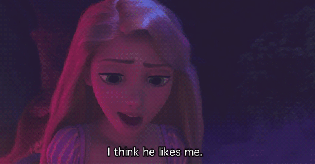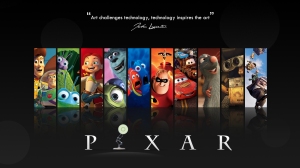Recently, classmate Becca Campina from my Introduction to Writing Arts class tweeted about this seasons The Bachelor. The tweet contained an article, discussing how the show portrays this years bachelor, Juan Pablo, to be a romantic, caring guy. This was until a camera man caught him saying “I loved having sex with you” to one of the top 2 finalists. Soon after, the Bachelor fans broke out into a craze, calling Juan Pablo a pervert, and conclusions were made about him only being in it for the sex.
 This tweet got me thinking about how women in our society are constantly being degraded and just being looked at for sex, especially those in their twenties. Nothing speaks to this thought more than an app I keep hearing about: Tinder. Tinder is advertised a dating website, it is apparent to most that the majority of people on the apps are there for hook ups.
This tweet got me thinking about how women in our society are constantly being degraded and just being looked at for sex, especially those in their twenties. Nothing speaks to this thought more than an app I keep hearing about: Tinder. Tinder is advertised a dating website, it is apparent to most that the majority of people on the apps are there for hook ups.
The conversations back and forth through these apps can be very demeaning. A friend has Tinder on their phone, and allowed me to share some of the messages she has received on the app. One unidentified user stated “Hey. Want to sit on my face? ;)” Another said “I could tear up that ass”. The comments to the female user was unwarranted, as her photos only contain pictures of her face, not her whole body, and are in no was seductive. When asking her why she has the app, she replied that it was a confidence booster.
I came across an article written in the Huffington Post, called The Unwritten Rules of Tinder by Todd Luling. The article outlines 26 rules created by the Huffington Post about Tinder. Although meant to be funny, reading the article showed me how truly we are even highlighting discrimination towards women.
The very first rule states “Be good looking.” showing a picture of a Disney princess, where they could have just as easily showed a picture of, say, Ryan Gosling. Rule number 6: “If you have a friend who is hotter than you are, use a photo of both of you. Keep ’em guessing and it can only help you.” The image under this rule also showed a picture of 3 beautiful women taking a photograph together. Number 13 states, “Don’t use Tinder to fall in love. It is strictly for hookups.” This image is also of a woman, looking distraught with her mouth tensed and hands covering her eyes. Number 22 shows a picture of Snookie, famous reality TV show actor from the Jersey Shore, stating “It’s all about LOCATION so make sure you’re not in an area notorious for bad hookups.”

If this is how an online publication like the Huffington Post views women on Tinder, how do they expect the participants of this app to act? Looking strictly at the first rule that simply states “Be good looking” is setting a standard that relationships are only valued on good looks. It is prefacing women to be treated like pieced of meat, being asking to “sit on [someone’s] face” or being told that their “ass” will be torn up. It’s okay, because the article goes on to tell women that if they are not good looking, they can just stand next to someone who is. This way, the user will still “like” them on the app so they are a match. The article then proceeds to tell users to only use it to find hookups, and show a woman looking upset, implying that we should remind our female audience to not get too emotionally attached, as woman can get, implied by the article. Lastly, they take a personal dig at Snooki, cautioning male users not to use Tinder in locations where girls like Snooki might be, because the app finds people by closest distance.
So after all, does is this app really doing anything to boost people’s confidence or self esteem? Lastly, is this truly a dating site? It may appear to be boosting one’s self esteem, and the app may call itself a dating website but the facts do not lie. Those facts are proven by the article, showing that it is very demeaning towards women. It was apparent through some of the rules in The Unwritten Rules of Tinder by more than their wording, but the images they showed with the wording. In the end one thing rang true, with the amount of people on Tinder demeaning women, I would follow rule 13: not to use Tinder to fall in love.
Posted by deannabertini in
Bachelor,
Dating,
Hook-ups,
love,
Tinder,
Viral and tagged
Apps,
dating,
IPhones,
love,
Online Dating,
Romance,
The Bachelor,
Tinder,
TV,
Women's Rights




